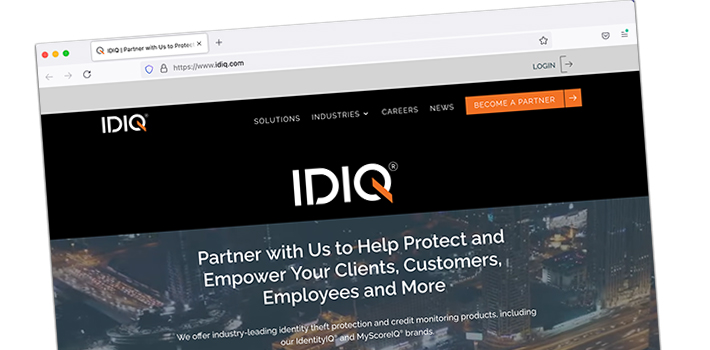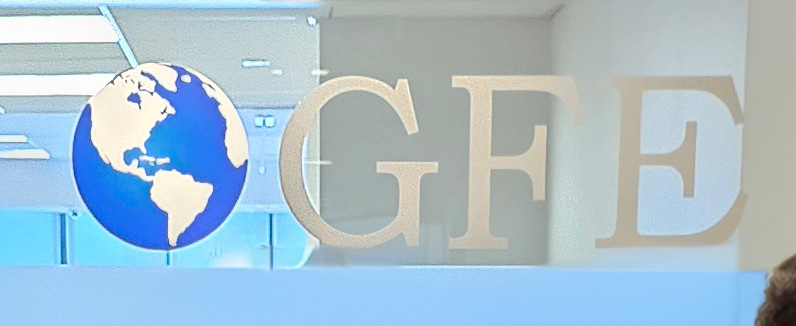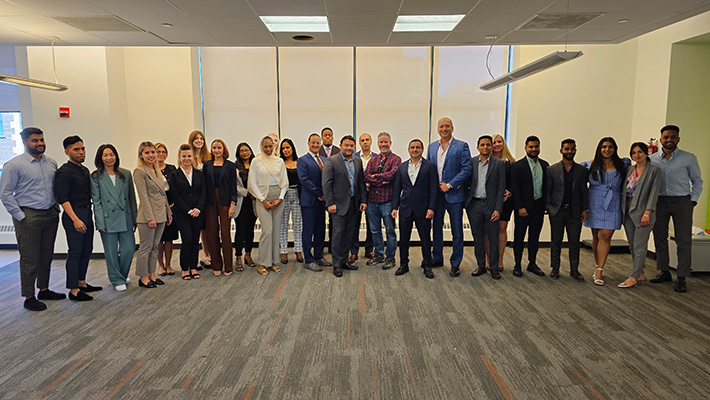Archive for 2023
The State of Funding Right Now
September 19, 2023 “The first quarter was actually kind of slow, like abnormally slow,” said Daniel Dias, founder of Small Business Lending Source, a brokerage based in San Diego. “We came off actually a record-breaking year last year. First quarter this year turned out slow and then it was kind of weird. Maybe it was owners who are hesitant to see what’s going on because there’s a lot of uncertainty in the market.”
“The first quarter was actually kind of slow, like abnormally slow,” said Daniel Dias, founder of Small Business Lending Source, a brokerage based in San Diego. “We came off actually a record-breaking year last year. First quarter this year turned out slow and then it was kind of weird. Maybe it was owners who are hesitant to see what’s going on because there’s a lot of uncertainty in the market.”
Dias says things changed dramatically in Q2, however, to the point of setting yet again a new record. And the momentum only continued into Q3.
“This quarter is actually turning out really well,” he said.
It’s also going really well for Greenbox Capital, a small business funding company based in Miami.
“Q3 has been our best quarter this year,” said Jordan Fein, Greenbox’s CEO. “We positioned the company well over the last 8 months, ready for whatever the economy throws our way. We are running lean and growing again.”
Greenbox began to tighten its credit policies late last year, according to Fein and by continuing this strategy into 2023, it has allowed the company to evolve. “Our momentum has been building ever since we tightened credit and refined our spending in Q4 2022,” Fein said.
Optimism is also in the air at The LCF Group, a small business funding company based on Long Island. “Navigating Q3 and approaching Q4, we anticipate our positive trajectory to continue given the consistent demand from merchants,” said Andy Parker, LCF’s CEO. “Despite certain sectors of the economy facing challenges and the appearance of recession indicators, we’ve adapted our underwriting to reflect these conditions without any major tightening of our guidelines.”
LCF recently announced that it had acquired key strategic assets from Reliant Funding.
The LCF Group Acquires Key Strategic Assets from Reliant Funding and Sets Course for a Record-Breaking Year
September 18, 2023New Hyde Park, NY, September 18, 2023 – The LCF Group, the leading capital provider specializing in subprime merchants across all U.S. industries, announced the successful acquisition of select strategic assets and licensing rights for Reliant Funding, a foremost authority in prime funding.
“We’re excited to announce The LCF Group’s successful acquisition of key assets from Reliant. This strategic move not only enhances LCF’s portfolio but also empowers us to offer merchant funding through both ISO partners and directly under the LCF and Reliant brands. With this step, LCF solidifies its position as the leading provider of quick access to working capital for small to mid-size businesses,” shared Andy Parker, CEO of LCF. “We’re making significant progress in our integration, capturing synergies, and realizing the financial advantages of this acquisition. Our focus remains unwavering: to meet the growing funding needs of small businesses nationwide.”
While LCF has resumed funding under the Reliant brand in the direct business, ISOs should stay tuned as the company plans to roll out funding options through the wholesale side of the business with select ISO partners in the coming months.
For information on The LCF Group, visit www.thelcfgroup.com. Learn more about Reliant Funding at www.reliantfunding.com.
About The LCF Group
Founded in 2011 and headquartered in New York, The LCF Group is a seasoned MCA capital provider. The company specializes in funding small businesses across all states, industries, and risk factors. To date, LCF has funded more than 8,000 businesses and receives a glowing 4.7 / 5 star rating from more than 1,000 customers on Trustpilot.
As IRS Announces Pause of ERC Payouts, Businesses May Resume Pursuit of Upfront Alternatives
September 14, 2023 Across the web on internet forums such as Reddit, business owners accustomed to telling ERC filing war stories are starting to worry that their checks might not be coming any time soon.
Across the web on internet forums such as Reddit, business owners accustomed to telling ERC filing war stories are starting to worry that their checks might not be coming any time soon.
“I spoke with an agent today. She said they received an organization-wide email to stop processing ERC for the time being,” one user reported at the end of August. Some users replied to say that it wasn’t true. But it is.
On July 26, IRS Commissioner Danny Werfel said that the IRS had cleared its backlog of valid ERC claims and is now “intensifying compliance work and putting in place additional procedures to deal with fraud in the program.”
“The further we get from the pandemic, we believe the percentage of legitimate claims coming in is declining,” Werfel said.
The IRS later confirmed to the Wall Street Journal that it had in fact slowed its processing of claims. There’s some truth in the assertion that the IRS had cleared out a major backlog before doing this.
In late June, for example, those same internet forums were abuzz with happy check recipients and a rush of optimism that the era of long processing wait times was coming to a close. The shift in sentiment had implications. For Finance ERC, a company that provides business owners with cash upfront in return for buying their future ERC receivables, the impact was immediate.
“[Early in] the summer we saw tremendous demand in our origination levels, April, May, and June, of companies coming to us with the mindset that the IRS was taking too long so they wanted to sell their ERC credit rather than wait,” said David Goldin, a Managing Member of Finance ERC. “And then we saw in our portfolio, which is large checks flowing in from the IRS all at once over the summer, and then we saw our demand for new customers fall off a cliff.”
The IRS cranking out checks had made people reconsider not wanting to wait.
“Psychologically, customers then would say, ‘why would I finance it, I’m going to be getting my check any day, my friend got his check, this one got his check…'”
But since then IRS checks slowed to a crawl, intentionally. And for all the talk about clearing the backlog, there were still 637,000 unprocessed 941-X forms (adjusted quarterly tax forms necessary for the credit) as of September 6th, not to mention that under current law, 2020 tax returns can be amended until April 2024, and 2021 returns can be amended until April 2025.
On September 14th, the IRS upped the ante of a delay to a total pause for new claims. “New claims for the employee retention credit, or ERC, won’t be processed until at least 2024,” the WSJ reported. The headline leaves little room for misinterpretation: IRS Shuts Door on New Pandemic Tax Credit Claims Until at Least 2024.
 All of which means that business owners are now back to the waiting game and potentially back to considering upfront solutions. For Finance ERC, the company saw interest suddenly pick up and then accelerate since the first WSJ story came out.
All of which means that business owners are now back to the waiting game and potentially back to considering upfront solutions. For Finance ERC, the company saw interest suddenly pick up and then accelerate since the first WSJ story came out.
“So I’m not saying the day that article came out, but we’ve definitely seen a spike in demand,” Goldin said. “My thing would be that for anyone that was selling [ERC financing], to think about that again, or those that weren’t selling it and they’re feeling that the MCA market is struggling, it’s too competitive, this is a new opportunity.”
Goldin shared this prior to the news breaking that the delay of ERC payouts had completely paused. Presumably, it would only make businesses more interested in getting the financing.
As he previously told deBanked, Finance ERC’s product requires no payments, can be eligible for up to 4-6x of what they would otherwise qualify for with an MCA, and can get it at a fraction of the cost of an MCA. But offering it can’t be done as an afterthought, he explained, even if you’re a big company with a big merchant portfolio.
“…you send out one or two emails you might as well not even send them out at all,” Goldin said.” Unless you’re actually embracing the product in your ecosystem, you know, drip marketing, follow up, you literally have to have a separate team selling it or it won’t work. But the guys that have done it, I know a few MCA guys that have, they’ve crushed it on both filing and funding. They’ve set up a separate group, separate sales guys, and they’re really killing it.”
And so the previous frontier of financing the ERC could now also be the next frontier yet again because of what’s taking place. On one subreddit, now that the reality is setting in, the tone has shifted.
“Has anyone tried contacting their state representative about the delay in refund?” The user began. He then adds that he’s already been waiting a whole year.
US Senators Introduce National Interest Rate Cap Bill
September 12, 2023 Four Democratic US Senators want to establish a national usury rate for credit transactions. S. 2730, dubbed the “Protecting Consumers from Unreasonable Credit Rates Act of 2023” says that “attempts have been made to prohibit usurious interest rates since colonial times” but that high interest rates have prevailed because of loopholes, safe harbor laws, and the “exportation of unregulated interest rates permitted by preemption.”
Four Democratic US Senators want to establish a national usury rate for credit transactions. S. 2730, dubbed the “Protecting Consumers from Unreasonable Credit Rates Act of 2023” says that “attempts have been made to prohibit usurious interest rates since colonial times” but that high interest rates have prevailed because of loopholes, safe harbor laws, and the “exportation of unregulated interest rates permitted by preemption.”
The solution to all this, it says, is a nationwide 36 percent rate cap that no one can ever circumvent and for which no exemptions would be allowed. The bill repeatedly references “consumers” and makes no mention of commercial or business credit. The bill would technically amend the Truth in Lending Act, however, so TILA covered parties are the likely covered parties for this bill as well.
The sponsors are Sen. Durbin, Sen. Blumenthal, Sen. Merkley, and Sen. Whitehouse.
This bill is new. Whether it progresses remains to be seen.
California On Verge of Passing Another Commercial Financing Bill
September 12, 2023 Complying with the recent California commercial financing disclosure law? Great! Get ready for another one. Senate Bill 666 (unfortunate number choice) has been making its way through the state legislature since February and is approaching a final vote.
Complying with the recent California commercial financing disclosure law? Great! Get ready for another one. Senate Bill 666 (unfortunate number choice) has been making its way through the state legislature since February and is approaching a final vote.
The bill would prohibit covered entities from charging:
(a) A fee for accepting or processing a payment required by the terms of the commercial financing contract as an automated clearinghouse transfer debit, except for a fee imposed for a payment by an automated clearinghouse transfer that fails because of insufficient funds in the transferor’s account.
(b) A fee for providing a small business with documentation prepared by the covered entity that contains a statement of the amount due to satisfy the remaining amount owed, including, but not limited to, interest accrued to the date the statement is prepared and a means of calculating per diem interest accruing thereafter.
(c) A fee in addition to an origination fee that does not have a clear corresponding service provided for the fee, including, but not limited to, a risk assessment, due diligence, or platform fee.
(d) A fee for monitoring the small business’s collateral, unless the underlying commercial financing transaction is delinquent for more than 60 days.
(e) A fee for filing or terminating a lien filed in accordance with the provisions of the Uniform Commercial Code against the business’s assets that exceeds 150 percent of the cost of the filing or termination.
Overall, the bill is not that extreme. The bill can be viewed and tracked here.
Funding Circle US Originated $259M in 1st Half of 2023
September 7, 2023 Funding Circle’s US arm originated $259M worth of business loans in the first half of 2023, up from $214M in the previous half. Those loans are funded “through forward flow agreements with institutional investors.”
Funding Circle’s US arm originated $259M worth of business loans in the first half of 2023, up from $214M in the previous half. Those loans are funded “through forward flow agreements with institutional investors.”
The company’s recently filed financial statements say that US loans are “showing good growth.” And it’s with top tier borrowers to boot. It referred to 32% of its first half loans as being “super prime.”
AEBITDA was negative but that’s due to its planned investment to scale the business, the company said.
Yields on their US Loans averaged 5.8%, up from 4.4% over the same period last year.
The company’s newer product “Flexipay” was highly touted in its first half financials. Flexipay works like a line of credit. Once approved for a line, you provide invoice details to Funding Circle and they’ll make a secure payment in your name.
“We’ve seen good growth in US Loans and FlexiPay is showing great momentum as we expand our offering to access a larger market and serve more of our customers’ needs,” said company CEO Lisa Jacobs.
The Growth of IDIQ
September 7, 2023 IDIQ is no stranger to recognition. A leader in identity theft protection, the company has earned a spot on the Inc. 5000 list for four consecutive years. Founded in 2009, IDIQ began its journey with a handful of employees in a Southern California home before expanding to an office building in Temecula, CA. The Temecula location grew to seven buildings, opening additional offices in Illinois, Florida, and Arizona, along with hubs in Texas and New York.
IDIQ is no stranger to recognition. A leader in identity theft protection, the company has earned a spot on the Inc. 5000 list for four consecutive years. Founded in 2009, IDIQ began its journey with a handful of employees in a Southern California home before expanding to an office building in Temecula, CA. The Temecula location grew to seven buildings, opening additional offices in Illinois, Florida, and Arizona, along with hubs in Texas and New York.
“Yes, we’ve grown rapidly,” said Bryan Sullivan, Chief Operating and Financial Officer at IDIQ. “We’ve hired more than 150 employees in the last three years to facilitate our business growth. We currently have about 250 employees.”
According to Sullivan, the COVID-19 pandemic catalyzed two significant trends that contributed to IDIQ’s growth. First, there was a spike in online scams and identity theft. Second, there was an increase in consumer finance transactions, including credit card use, home purchases, and refinances.
Sullivan recalled one case in particular: “We had a member who received an alert that two companies, not accounts but companies, had been opened in a different state by an identity thief using their name and personal information and had applied for business loans,” said Sullivan. “We alerted the member to the fraud and helped them get the bogus companies eliminated.”
“Without these alerts it might have taken years for the victim to find out about the identity theft and bogus companies and loans in their name,” Sullivan explained. “And, once found out, it would take months if not years to recover their identity and credit and cost thousands of dollars in lost wages and other costs.”
An IDIQ customer can be pretty much anybody since they now have several brands. IdentityIQ, which focuses on identity theft and credit monitoring is their flagship. The others include MyScoreIQ, Resident-Link, Countrywide Pre-Paid Legal Services, and Credit & Debt.
In the small business finance industry, IDIQ is used several ways. In one example, brokers can offer merchants access to their credit reports and in turn use that data to help them figure out the best path to pursue for funding.
“Our strategy has been to continually expand our product offerings,” he said. “Adding features and benefits that protect and educate consumers as well as improve their financial wellness and help them meet their financial goals.”
Experts: How GFE Went Big
September 6, 2023The Brewster Building is an icon in Long Island City, a bustling district of Queens that’s right across the water from Manhattan. Most people know the building as the official headquarters of JetBlue because their giant logo on the roof can be seen from miles away. Others identify it as a major corporate hub for The Estée Lauder Companies since they sublease a substantial amount of office space inside. But up on the eighth floor, men and women traversing the hallways in suits work for another employer that’s making a splash in a different industry altogether. The sign on their door says GFE, which is short for Global Funding Experts. It’s a company that provides working capital to small businesses nationwide and they just recently secured a senior debt facility of up to $100 million.
Boris Musheyev, GFE’s CEO, founded the company almost a decade ago with partner Viacheslav “Steve” Eliyayev. Musheyev was working mainly in real estate when he learned about an innovative way to support small businesses by purchasing their future receivables. A cautious investor, he didn’t just jump right in. Instead, he bided his time with research on how it worked. He crunched numbers and analyzed the risks before he was confident it was something he wanted to do.
“From the outset, I’ve only channeled funds into ventures I wholeheartedly believed would both succeed and offer genuine value,” Musheyev told deBanked. “This commitment was evident in 2013 when we began by investing our capital.”
Alas, Global Funding Experts was born. The company’s model is referral partner driven, meaning they rely on ISOs for submissions and there’s no internal sales force. Today, GFE has an estimated 1,500 ISOs signed up and they receive about 700 applications on an average day. It’s a level of scale that wouldn’t be possible if they didn’t have an efficient CRM, something Musheyev predicted the necessity and utility of long before. GFE began building its own proprietary CRM in 2017 and the company used that to accelerate growth beyond its early startup days.
 With its momentum, GFE brought on Boris Shakhmurov to serve as COO in 2019, a traditional banking executive with 20 years experience. Shakhmurov was previously an Executive Director at JPMorgan Chase and had overseen mainly cybersecurity, technology controls, and compliance before making his move to GFE. The two Boris’s knew each other previously, having been friends for over 30 years already. At GFE, Shakhmurov’s pitch that “banks don’t lend to small businesses” lands differently given his background.
With its momentum, GFE brought on Boris Shakhmurov to serve as COO in 2019, a traditional banking executive with 20 years experience. Shakhmurov was previously an Executive Director at JPMorgan Chase and had overseen mainly cybersecurity, technology controls, and compliance before making his move to GFE. The two Boris’s knew each other previously, having been friends for over 30 years already. At GFE, Shakhmurov’s pitch that “banks don’t lend to small businesses” lands differently given his background.
“As an expert in Governance, Risk, and Compliance, when I joined the organization in 2019, our goal was to establish a best-in-class MCA Operational Resilience framework to address current and future challenges facing our industry,” Shakhmurov said. “With a focus on building strong and resilient operational controls, we used a multidisciplinary approach to assess the risk across all of our information assets and business processes. The Zero Trust and Defense-in-Depth approach enabled us to focus on early detection, rapid response, enhanced protection, and reducing single points of failure throughout the entire MCA lifecycle.”
For all the technical talk, Shakhmurov said what really stands out is the firm’s family-like atmosphere, which one can see for themselves in their spacious office. That environment has been achieved all while tightly controlling and compartmentalizing access to data, the company says. Security is paramount.

With the infrastructure in place, GFE hired Jonathan Mayer to be their CFO, a veteran accountant who previously spent more than 10 years at Grant Thornton LLP. Mayer first met Musheyev and Shakhmurov in 2021 and he echoed a similar sentiment about how he ended up at GFE. “The work ethic and trust and family environment really stood out to me,” Mayer said.
Between Musheyev, Eliyayev, Shakhmurov, and Mayer, the firm was then off to the races, ultimately leading up to the securing of a debt facility last month of up to $100 million. A lot went into making that happen, including the enlistment of a well known industry law firm to perform the due diligence, they say.
“Through consistent communication with our merchants and operational adaptability, we’ve not only met but surpassed our profitability benchmarks, all the while ensuring minimal defaults in our portfolio,” Musheyev said.
The company also credits having a qualified CFO and robust CRM technology as being necessary ingredients to getting a serious deal done. GFE’s signature products include purchases of future receivables, reverse consolidations, and more recently something called “Incremental Funding.” There’s also no commission clawbacks, they tout. Overall, GFE has funded over $400 million in capital to small businesses since inception.
The executive team heaped praise on the staff for being integral to their success.
“What we have is trust,” Shakhmurov said, who comes back again and again to the importance of building a business that will endure. “If you look at the banking industry, you need operational resilience,” he said.






























